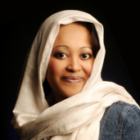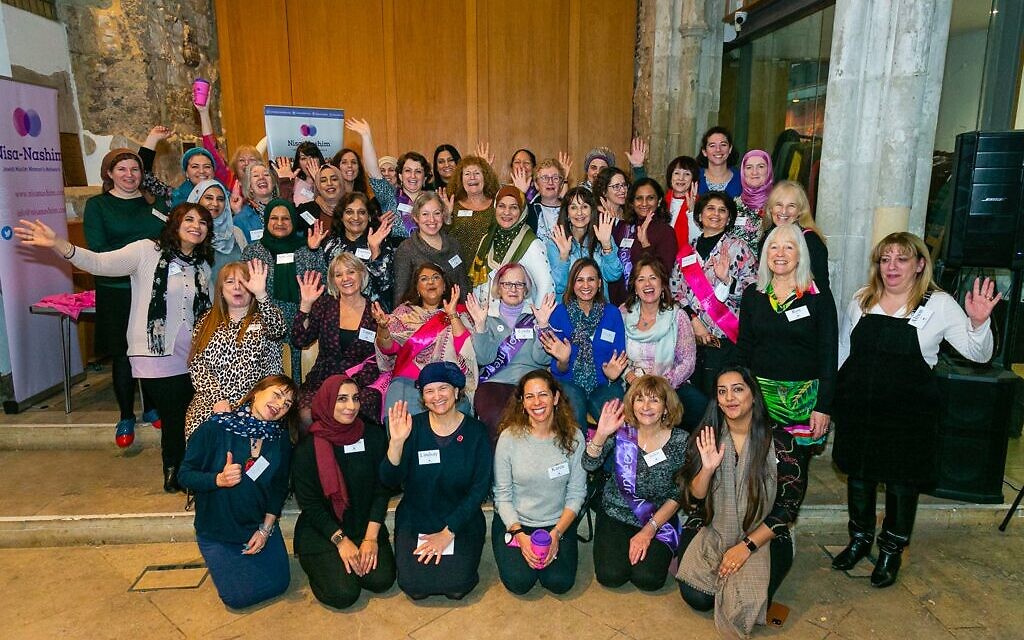OPINION: Addressing the elephant in the room
Dr Zaza J Elsheikh reflects on how interfaith work must continue even when violence flares up between Israel and the Palestinians
On the bright Sunday morning of 14 November 2021, 44 Muslim and Jewish women, all members of Nisa-Nashim the national charity formed by Jewish and Muslim women, converged on St Ethelburga’s Centre for Peace and Reconciliation for a Retreat.
As the venue might suggest, one key purpose of the Retreat was to provide a safe and neutral space for these 44 brave women to address “the elephant in the room”, the Israeli-Palestinian conflict.
Conscious of the fact that I am a Muslim woman, I needed to rapidly win the trust and respect of the women, and in particular, the Jewish women, so that everyone felt safe enough to ventilate their deeply personal fears and irritations about the Israeli-Palestinian conflict.
Get The Jewish News Daily Edition by email and never miss our top stories Free Sign Up
Although the Israeli-Palestinian conflict has never been triggered by differences in religious belief, its resultant fault lines appear between faith communities in the UK, due to the affiliations that Jewish people have with Israel, and Muslim people have with Palestine. It is, therefore, a highly sensitive and emotive elephant in the room.
The board of Nisa-Nashim felt obliged to specifically address this topic because the most recent surge of large-scale violence during May 2021 had seriously impacted the women’s relationships in ways that shook the foundations of all they held as precious commonalities that underpinned their mutual trust and rapport.
I opened the session by asking the group to address the elephant in the room whilst commending them for their courage and encouraging them to be as candid as possible.
Initially, to build trust, I shared reflections about Islamic History highlighting some easily verifiable facts. Jewish and Muslim communities had been closely linked since the Prophet Muhammad was given sanctuary by the leading, and majority, Jewish communities in Medina (then Yathrib) after many early Muslims had fled persecution in Mecca. Consequently, Medina rapidly became the platform for the exponential spread of Islam.
Within the context of safely addressing “the elephant in the room”, I asked all the participants to engage in a personal reflection on how the most recent peak of violence between Israel and Palestine during 6 – 21 May 2021 (which also triggered the anti-Semitic assault in North London on 16 May 2021), had affected:
i) them internally,
ii) their interactions within their close family units and finally
iii) within their wider communities for 30 minutes.
Obvious trepidation dissolved into mutal respect. When I invited the participants to share how they confronted, and managed, the uninvited “elephant” that had interrupted their relationships of 4-5 years, a dozen women chose to share their thoughts verbally.
The women concurred unanymously that the violence was deeply upsetting and triggered a sense of helplessness. Many of the Jewish women reported feelings of shame by association, and both Jewish and Muslim women reported feeling torn/conflicted within their homes and communities. Some Jewish women felt voiceless, whilst some Muslim women had been criticised for highlighting that both sides of the conflict were in pain.
All the women expressed a frustration and disappointment with how the conflict negatively impacted the perceptions within and between the Jewish and Muslim communities in the UK. The women shared anxieties about children’s expression of views that had become somewhat biased towards their respective religious identities.
As an experienced mediator between and within faith communities, I have found that when in an exclusively female environment, typified by Nisa-Nashim, women are keen to speak about highly emotive subjects. It is evident that women’s oxytocin-fuelled relationships can also easily transcend interstate conflict.
If these conversations can be developed further in the UK, sufficient traction may be built to inspire Jewish and Muslim women in Israel to build similar levels of trust and rapport. I am left wondering whether an initiative, based on a similar premise, between men and women might ultimately lead to a sustainable peace agreement brokered by ordinary folk rather than career politicians.

Thank you for helping to make Jewish News the leading source of news and opinion for the UK Jewish community. Today we're asking for your invaluable help to continue putting our community first in everything we do.
For as little as £5 a month you can help sustain the vital work we do in celebrating and standing up for Jewish life in Britain.
Jewish News holds our community together and keeps us connected. Like a synagogue, it’s where people turn to feel part of something bigger. It also proudly shows the rest of Britain the vibrancy and rich culture of modern Jewish life.
You can make a quick and easy one-off or monthly contribution of £5, £10, £20 or any other sum you’re comfortable with.
100% of your donation will help us continue celebrating our community, in all its dynamic diversity...
Engaging
Being a community platform means so much more than producing a newspaper and website. One of our proudest roles is media partnering with our invaluable charities to amplify the outstanding work they do to help us all.
Celebrating
There’s no shortage of oys in the world but Jewish News takes every opportunity to celebrate the joys too, through projects like Night of Heroes, 40 Under 40 and other compelling countdowns that make the community kvell with pride.
Pioneering
In the first collaboration between media outlets from different faiths, Jewish News worked with British Muslim TV and Church Times to produce a list of young activists leading the way on interfaith understanding.
Campaigning
Royal Mail issued a stamp honouring Holocaust hero Sir Nicholas Winton after a Jewish News campaign attracted more than 100,000 backers. Jewish Newsalso produces special editions of the paper highlighting pressing issues including mental health and Holocaust remembrance.
Easy access
In an age when news is readily accessible, Jewish News provides high-quality content free online and offline, removing any financial barriers to connecting people.
Voice of our community to wider society
The Jewish News team regularly appears on TV, radio and on the pages of the national press to comment on stories about the Jewish community. Easy access to the paper on the streets of London also means Jewish News provides an invaluable window into the community for the country at large.
We hope you agree all this is worth preserving.
-
By Brigit Grant
-
By Laurent Vaughan - Senior Associate (Bishop & Sewell Solicitors)
-
By Laurent Vaughan - Senior Associate (Bishop & Sewell Solicitors)
-
By Laurent Vaughan - Senior Associate (Bishop & Sewell Solicitors)
-
By Laurent Vaughan - Senior Associate (Bishop & Sewell Solicitors)























